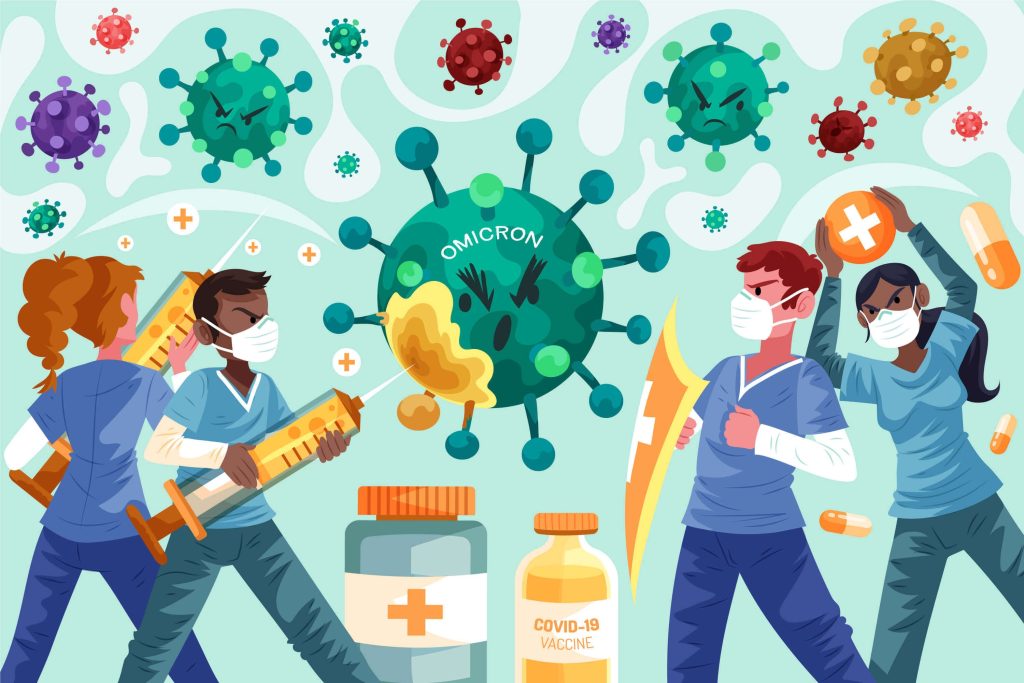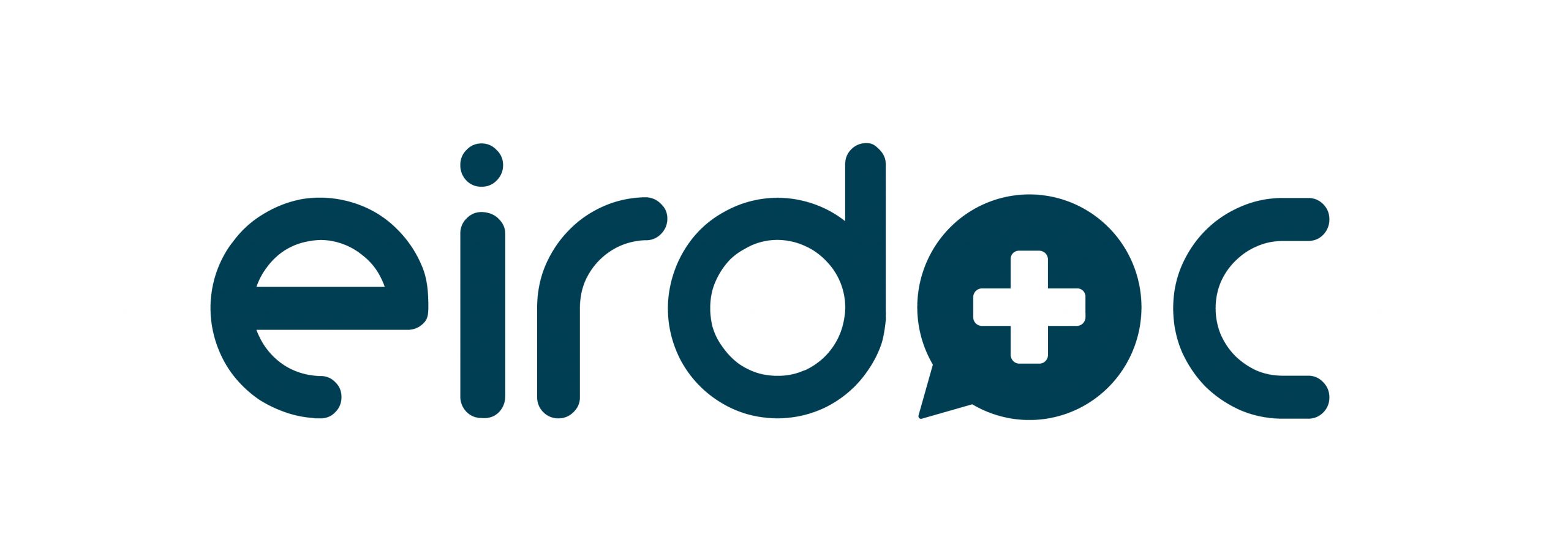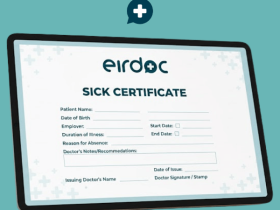
Discover and learn about the 10 most common infectious diseases in Ireland, their symptoms, prevention, possible treatments, and book an appointment with an Eirdoc online doctor for a consultation and expert care.
Introduction
Infectious disease are health conditions caused by pathogens (harmful germs) that get into the body to make you ill. The common sources of this illness are bacteria, viruses, parasites, and fungi. Infectious disease spreads from one person to another through contaminated food, water, or bug bites. More commonly, we can get an infectious disease from breathing in germs and from the environment around us.
Infectious diseases are common in Ireland and affect thousands every year. The medical conditions that you may face due to infectious diseases are managed by recognising the symptoms early and consulting an expert. At Eirdoc, our medical team, consisting of online infectious disease doctors, helps you diagnose the infections and provides fast and expert treatment plans.
We will discover and explain the 10 most common infectious diseases in Ireland and guide you on when to consult a doctor online.
10 Most Common Infectious Disease in Ireland You Must Be Aware of
Influenza (Flu)
The common name of Influenza is flu. The influenza virus causes this medical illness. Influenza is a common respiratory illness. The virus spreads from one person to another and creates mild symptoms that can make you feel sick. The most common source of spreading the influenza virus is when people around you cough, sneeze, or talk. In some cases, it can spread when a person with Influenza touches something and contaminates it.
The common symptoms of Influenza include
- High fever
- Headache
- Cough
- Sweating and chills
- Muscle aches
- Feeling very tired
- Sore throat
You can decide to consult Eirdoc doctor with these symptoms, and the doctor diagnoses Influenza by asking symptoms and your medical history. Influenza is commonly treated with anti-viral medications, and it helps in reducing the risk of severe illness.
The Common Cold
The common cold is one of the most common infectious diseases in Ireland, affecting the nose and throat. This infectious disease spreads easily in homes, workplaces, playgrounds, and classrooms. More than 200 different viruses cause the common cold. The common cold spreads from one person to another when a person physically comes into contact with the nasal secretions from a person with the common cold.
You will get the following symptoms of a common cold within one to three days of picking up the cold virus.
- Frequent sneezing
- Running nose
- Headache
- Sore throat
- Cough
- Nasal congestion
- and fever, commonly in children.
An Eirdoc online health consultant can advise and help you to reduce your symptoms because there is no cure for a cold. You will have to let it run, and it goes away on its own within 10 days.
Gastroenteritis
Gastroenteritis is an illness that causes inflammation in the stomach and intestines. This is a short-term illness due to infection and inflammation of the stomach that can often lead to abdominal cramps, diarrhoea, and vomiting. Gastroenteritis is commonly caused by stomach flu, which is caused by consuming contaminated food or water.
Common symptoms of this viral disease include:
- Diarrhoea
- Abdominal pain
- Loss of appetite
- Nausea and vomiting
- Fever
- Chills
- Fatigue and body aches
There is no effective treatment for viral Gastroenteritis, but you can consult an infectious disease doctor via Eirdoc if the symptoms remain beyond 48 hours.
COVID-19
COVID-19 Coronavirus is a coronavirus-borne respiratory illness. Most people infected with this virus go through moderate respiratory difficulties and can recover without treatment. This disease spreads commonly through the air due to the connection of tiny droplets of fluid between people. The common mode of spreading is when the infected person breathes, sings, coughs, sneezes, and talks to others.
The common symptoms of this infection include:
- Fever and chills
- Sore throat
- Cough and Fatigue
- Breath shortness
- Brain fog
- Diarrhoea, nausea, or vomiting
- Change in sense of smell and taste
If you suspect the symptoms are of COVID-19, the infectious disease treatment is important because Eirdoc doctors can provide feedback on your current health and medication is required.
Tuberculosis (TB)
TB is a bacterial infection that affects your lungs. This illness also affects other human organs, like the kidneys, spine, and brain. TB spreads when the infected person coughs, sneezes, or talks to other. Others can breathe the droplets carrying the germs in the air to get into the lungs.
The common symptoms of Tuberculosis (TB) are
- Bad cough
- Coughing a blood
- Chest pain
- Weight loss
- Loss of appetite
- Fatigue and weakness
- Night sweats
- Fever and Chills
If you have continued symptoms, an Eirdoc consultation can help you to assess the risk factors and refer you for the specialist investigation. This illness is treated using antibiotics or a combination of medications to get rid of the infection.
Respiratory Syncytial Virus (RSV)
RVS is a common medical condition that causes infection of the lungs and respiratory tract. This infectious disease is common in babies, kids, and adults. Respiratory Syncytial Virus (RSV) mainly spreads through close contact with someone with this condition, coughing and sneezing, and touching contaminated objects.
Respiratory Syncytial Virus (RSV) has the following symptoms:
- Dry cough
- Low-grade fever
- Sneezing and a runny nose
- Headache
This illness is dangerous for children, and consulting Eirdoc can help the parents decide if the child needs urgent care.
Urinary Tract Infections (UTIs)
UTIs are one of the most common bacterial infections in Ireland. This disease can infect any part of your urinary system, and it is caused by bacteria called E. coli. UTI is very common in females, and one can get this illness when bacteria enter through the urethra and infect the bladder.
The symptoms of Urinary Tract Infections (UTIs) are:
- Fever and chills
- Problems with peeing
- Abdominal pain or pain in the lower back
- Cloudy and foul-smelling dark pee
- Pain while peeing or during sexual intercourse
An infectious disease doctor is consulted to treat this medical condition. Eirdoc provides medical consultation and recommends antibiotics used to treat UTIs.
Sexually Transmitted Infections (STIs)
The common STIs in Ireland include chlamydia, gonorrhea, syphilis, and HIV. This illness is a serious condition that can develop due to sexual intercourse with your partner. This disease spreads from sexual activities that involve the vagina, penis, anus, or mouth. STIs are highly contagious, and you can get and pass on STIs without even knowing it.
The common symptoms of STIs are:
- Unusual discharge from the penis or vagina
- Painful urination
- Sores around the genital area
- Blisters around the mouth
- Anal itching or bleeding
- Abdominal pain
- Abnormal vaginal odour
Eirdoc offers online consultation and confidential care through professionalism and experience for infectious disease treatment. The common treatment of STIs includes antibiotics and anti-viral medication upon recommendation.
Chickenpox
Chickenpox is a viral illness that produces a red rash that blisters and then forms scabs on the skin. This is a highly contagious illness that spreads through body fluids. This is common in children and spreads to the other children who haven’t gotten the chicken pox vaccine.
The common symptoms that you may observe include:
- Skin rashes
- Bumps filled with a liquid
- Scabs after the blisters break
- Blotchy skin
- Crusty spots on the skin
- Headache
- Feeling tired
Children with this condition are treated with anti-virals. Adults who experience this illness can consult an Eridoc infectious disease doctor for safe management and recovery.
Whooping Cough (Pertussis)
Whooping Cough is a medical condition that can lead to pneumonia, brain damage, or respiratory conditions. This disease spreads from an infected person through coughing or sneezing, and you breathe it in. This illness affects people of all ages, but it can develop severe medical conditions in infants.
The common symptoms include:
- Slight fever
- Pause in breathing in babies
- Occasional coughing
- Running nose
If your child is having one of these symptoms, an Eirdoc e-consultation with an infectious disease doctor can be the right choice for you. Early intervention can save the child from further complications.
Conclusion
Infectious diseases in Ireland are common and manageable with good care and time. Regularly check your symptoms of the infectious disease, and immediately consult the best infectious disease doctors if you do not notice any visible change in your medical condition. Eirdoc online medical consultation can offer you fast, reliable, professional, and confidential infectious disease treatment.
-
What is the most common infectious disease in Ireland?
The most common infectious diseases in Ireland are Influenza and the common cold. This disease becomes more common and infectious during winter.
-
When should I see an infectious disease doctor?
You should immediately consult an infectious disease doctor when you observe that the symptoms persist, become complicated, and do not improve. This indicates that you belong to a high-risk group. You should immediately consult the doctor and start medication upon recommendation.
-
Can infectious diseases be treated online?
Infectious disease treatment of diseases like UTIs, flu, COVID-19, and some STIs can be managed effectively online. However, it is recommended to visit the doctor if the symptoms persist.
-
How do I book an online consultation with Eirdoc?
You can visit the website, choose your own date and time, and speak to an infectious disease doctor according to your requirements, within a few minutes.






Leave a Reply